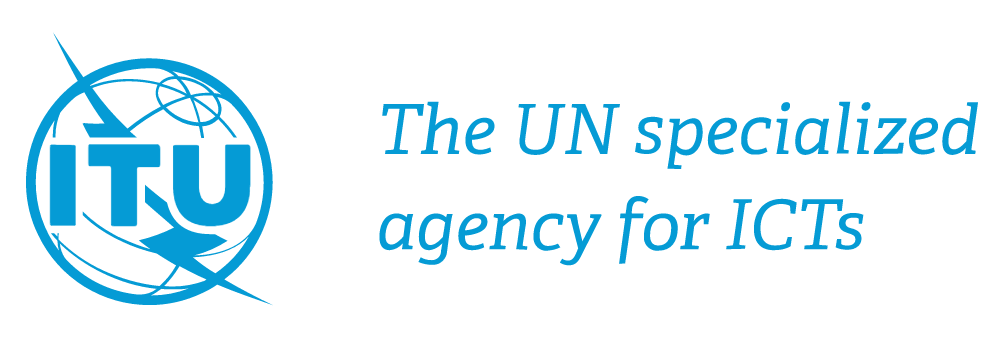Cyber for Good is an ITU project that aims to bridge the cybersecurity capacity gap in the Least Developed Countries (LDCs) through facilitated support and access to ITU MembersвАЩ experience, expertise, services, tools, and products.
Leave No One Behind
On behalf of the ITU, we provide philanthropic cooperation to make Africa a global powerhouse of the future. In our digital era, Cybersecurity plays a transversal role in enabling the potential of the public sector, various industries and civil society.
Therefore, we aim to empower African countries to close the cybersecurity capacity gap to take full advantage of digitalisation as a driver for their social and economic development.
In doing so, we help foster a responsible societal culture of cybersecurity to create and consolidate the trust of citizens and organisations in digital services within their local communities in LDCs.

Cyber for Good and Partner2Connect Digital Coalition
The Cyber for Good project supports the Partner2ConnecвАЛt (P2C) Digital Coalition initiative in fostering safe and meaningful connectivity enabling digital transformation efforts globally by supporting developing countriesвАЩ cybersecurity improvement.
Dreamlab Technologies is proud to be a Sector Member of the Partner2Connect project and contributing to the вАЬCyber for GoodвАЭ Initiative on behalf of the International Telecommunications Union.
In the 4th industrial revolution era, we are all now reliant on a cyberspace that must be secured and trustworthy for all facets of our lives. This dependance is only growing as governments, businesses, academia, civil society absorb digital transformation. Cyberspace is now a critical service which has a real impact on daily lives of billions of people around the world.
Various studies shows that the cost of cybercrime ranges from 8-10 Trillion CHF annually. Even though some regions and countries have implemented strong law/regulations, institutions and have a strong pool of skilled professionals. It remains countries and regions which are lagging behind and needs help, guidance and grow in experience and competences.
Strategy for Africa
According to the International Telecommunication Union (ITU), in its Global Cybersecurity Index 2020, out of the 55 African countries:
- 29 have data protection legislation,
- 29 are engaged in international cybersecurity activities,
- 23 have a national cybersecurity strategy,
- 19 have a cyber alert and response center (CERT),
- 31 have legislation on cybercrime and network hacking,
- 17 have legislation on online harassment with only 6 having a cybersecurity skills development mechanism,
- 12 have bilateral cybersecurity agreements compared to 19 for multilateral agreements.
Cyber criminality knows no border and is aiming at the easiest targets first. Lacking strong governance can only leave way for proliferation of threats and vulnerabilities for governments, businesses, and citizens. Predictions for 2023 foresee an increase of exploitation of current threats.
Some of the top cyber threats in African region:
- Increase in Phishing and Ransomware / Malware attacks
- Increase in Mobile threats
- Increase in Crypto jacking
- Social engineering
- ATM skimming / Micro Payment / Micro Finance
- Advanced persistent threats (APTs)
- Internet of Things and Industrial Control Systems.
In addition, the explosion of cloud adoption in the region brings additional issues such as poor implementation and misconfiguration bringing top cybersecurity threats such as unsecured networks and misconfigured firewalls, outdated software, poor credentials to name few.
Lastly, the African Union Convention on Cyber Security and Personal Data Protection was drafted in 2011 (also known as the Malabo Convention) to establish a вАШcredible framework for cybersecurity in Africa through organization of electronic transactions, protection of personal data, promotion of cyber security, e-governance and combating cybercrime.вАЩ which was adopted in June 2014.
The Convention addresses three main areas:
- Electronic transactions,
- Personal data protection,
- Cyber security and cybercrime.
This treaty is about to enter into force, there is therefore an urgent need to help the continent to mature their cybersecurity posture, enable laws/regulations, build institutions, equip them with relevant and efficient technology and empowering them by closing the skill gap as fast as possible.
ITU Pledge
Dreamlab has proposed to provide its Cyberspace Radar System (CyObs) to map, measure and visualize the cyberspace of a set of LDC countries.
Having a radar system helps a country to:
- Measure a country cyberspace
- Have a concrete visual evaluation of the pulse of the security level of their cyberspace over time
- Quantify (public) attack surface – Be better informed on the current situation of vulnerabilities and cyber criminality
- Manage Governance and Operational Cybersecurity
- Make better informed decisions for maturing policies, laws and regulations and evaluate their efficiency over time
The goal of the project is to be a barometer to sense the development of local cyberspace that in-fine:
- Benefit economical development in monitoring the maturity of cybersecurity of the digital ecosystem,
- Ensure stability and national security by understanding better the evolving threat on critical infrastructures,
- Builds trust between citizen / government in keeping citizen data safer,
- Basis for employment / creating jobs in the IT and digital economy,
- Secure cyberspace triggers and attract foreign investment in local projects / entrepreneurship.
The project focuses at empowering local, national or regional capabilities to take actions on learning about and reducing their attack surface.
The Cyber Radar contributes towards the ITU Cyber 4 Good Initiative.
Links
Contact Info
- P2C Secretariat: partner2connect@itu.int
- Cyber for Good project: cybersecurity@itu.int

